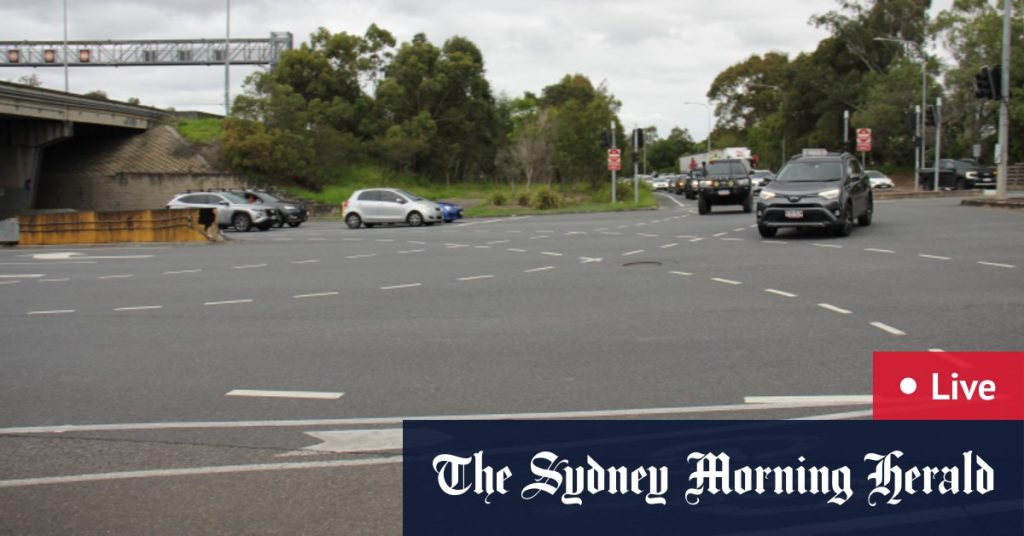Brisbane residents are bracing for a week of unsettled weather characterized by cloudy skies and a significant chance of showers, continuing a pattern of unpredictable conditions in the River City. Today’s forecast predicts a maximum temperature of 28 degrees Celsius following a humid overnight low of 23 degrees. This warm and moist environment, coupled with already saturated ground from a particularly wet month, sets the stage for potential flash flooding events, a concern underscored by Lord Mayor Adrian Schrinner. He has urged residents to proactively develop flood plans in anticipation of a wetter-than-average summer, as predicted by the Bureau of Meteorology. The memory of the devastating 2022 floods, where rainfall significantly exceeded predictions, serves as a stark reminder of the potential for rapid and destructive flooding events.
The Bureau of Meteorology’s outlook for the week reinforces the need for preparedness. While specific daily forecasts will fluctuate, the overall trend points towards continued cloud cover and intermittent showers. This sustained period of wet weather, combined with the pre-existing ground saturation, significantly elevates the risk of flash flooding. Flash floods, by their very nature, can occur with little warning, rapidly inundating low-lying areas and posing a serious threat to life and property. The Lord Mayor’s call for flood plans emphasizes the importance of individual responsibility in mitigating the potential impacts of these extreme weather events.
Developing a comprehensive flood plan involves several key steps. Firstly, residents should assess their individual vulnerability to flooding based on their property’s location and proximity to waterways. Online resources and local government websites often provide flood maps and historical data that can inform this assessment. Secondly, a plan should outline specific actions to be taken in the event of a flood warning, including evacuation routes, designated safe locations, and communication protocols with family members. Essential supplies, such as drinking water, non-perishable food items, medications, and important documents, should be readily accessible and stored in waterproof containers.
Beyond individual preparedness, community-level responses are also crucial for effective flood management. Local authorities play a vital role in disseminating timely warnings, coordinating evacuation efforts, and providing support to affected residents. Regular maintenance of drainage systems and infrastructure is essential for minimizing the impact of heavy rainfall. Community education and awareness campaigns can further equip residents with the knowledge and skills needed to navigate flood events safely. Collaborative efforts between individuals, community organizations, and local government are paramount in building resilience to the increasing frequency and intensity of extreme weather events, including flash floods.
The projected wetter-than-average summer necessitates a shift towards proactive adaptation strategies. Beyond immediate flood preparedness, residents are encouraged to consider longer-term measures to mitigate the impacts of climate change-related extreme weather. This might include investing in property-level flood mitigation measures, such as elevating critical infrastructure or installing backflow prevention devices. Supporting sustainable urban planning initiatives that prioritize green infrastructure and permeable surfaces can also contribute to improved water management and reduce the risk of flooding. Adopting water conservation practices and reducing greenhouse gas emissions are essential steps in addressing the root causes of climate change and minimizing the severity of future extreme weather events.
In conclusion, the forecast for a week of potentially significant rainfall in Brisbane underscores the growing need for proactive flood preparedness. The combination of saturated ground and a wetter-than-average summer outlook creates conditions ripe for flash flooding, posing a serious threat to the city and its inhabitants. The Lord Mayor’s call for residents to develop flood plans is a timely reminder of the importance of individual responsibility in mitigating the impacts of extreme weather. By taking proactive steps to prepare, fostering community-level collaboration, and embracing long-term adaptation strategies, Brisbane can enhance its resilience to the challenges posed by a changing climate and ensure the safety and well-being of its residents.

